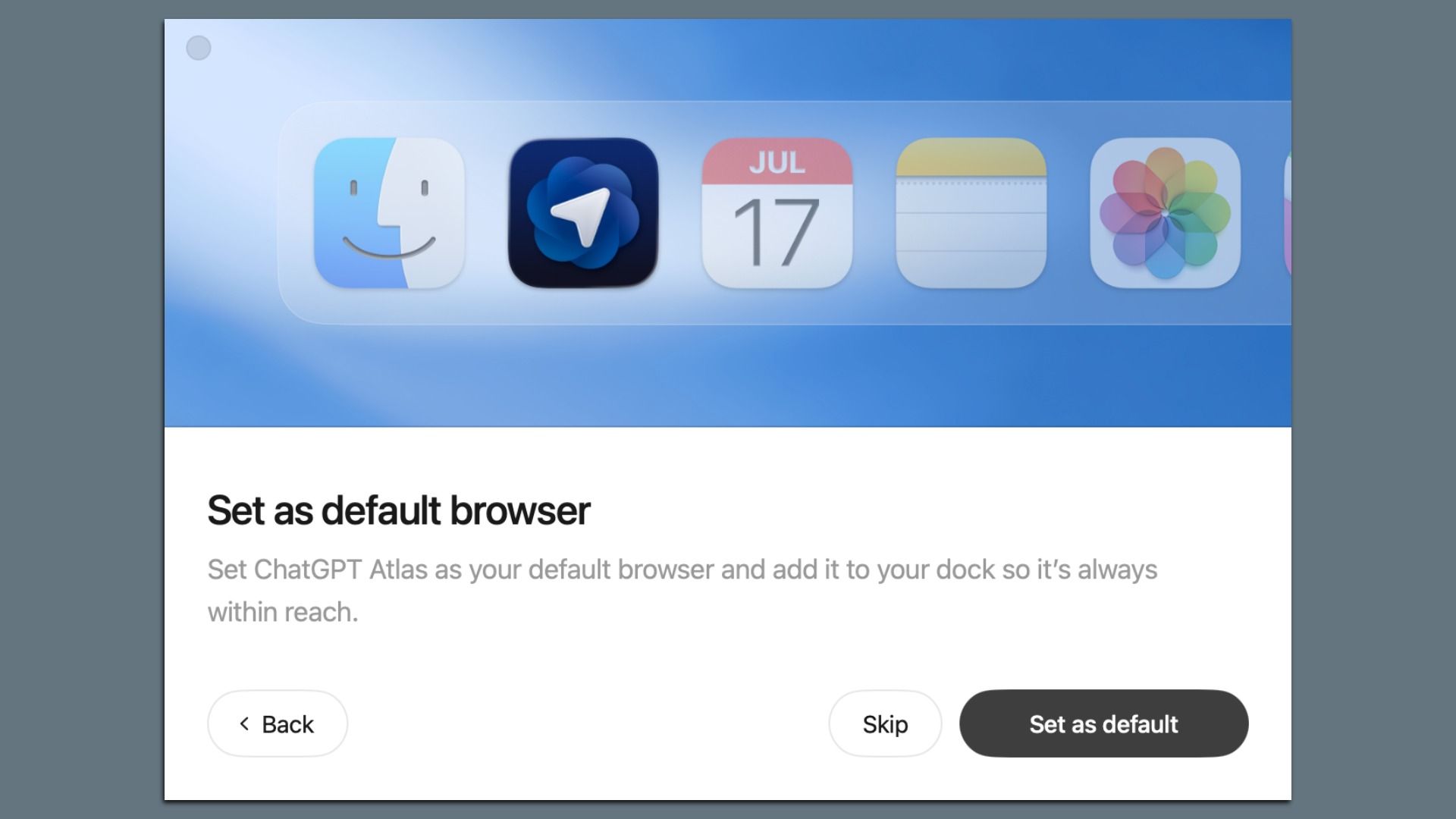OpenAI Launches ChatGPT Atlas Browser for macOS
OpenAI launches ChatGPT Atlas browser for macOS, challenging Google Chrome with AI-driven features like smarter searches and in-line writing help.

OpenAI Launches ChatGPT Atlas Browser for macOS
In a significant move that could reshape the digital landscape, OpenAI has launched ChatGPT Atlas, a web browser integrating the capabilities of its renowned AI model, ChatGPT. This development marks a strategic challenge to established players like Google Chrome, potentially altering how users interact with online content and advertising revenue models.
On October 21, 2025, OpenAI announced the global availability of ChatGPT Atlas for macOS users, with plans to expand support to Windows, iOS, and Android soon. The browser is designed to enhance user experience by providing smarter searches, in-line writing help, and a sidebar for accessing ChatGPT directly on any webpage. This integration could put pressure on other browsers, particularly Google Chrome, by offering a more personalized and AI-driven browsing experience.
Key Features of ChatGPT Atlas
ChatGPT Atlas introduces several innovative features that differentiate it from traditional browsers:
- New Tab Page: Users can ask questions or enter URLs to get faster and more useful results in one place.
- Smarter Searches: The browser offers tabs for search links, images, videos, and news, allowing users to explore specific types of results beyond the chat interface.
- Ask ChatGPT Sidebar: This feature enables users to summarize, analyze, or perform tasks directly within the browser window.
- In-Line Writing Help: Users can pull up ChatGPT in any form field to assist with writing or editing without switching tabs.
- Browser Memories: When enabled, ChatGPT remembers key details from web browsing to improve chat responses and offer smarter suggestions. Users have full control over these memories, including the ability to view, archive, or delete them.
Industry Impact and Competition
The launch of ChatGPT Atlas is seen as a direct challenge to Google Chrome, which has been a dominant player in the browser market. OpenAI's browser could potentially disrupt the ad revenue model by offering users a more personalized experience that might reduce reliance on traditional advertising methods.
Ad Revenue and Competition
Google Chrome's success is partly due to its ability to integrate seamlessly with other Google services, which are crucial for its advertising revenue. OpenAI's entry into this space could lead to a shift in how companies approach online advertising, as users may opt for a more AI-driven experience. This could pressure Google and other platforms to innovate and adapt their strategies to remain competitive.
Future of Browsing
The integration of AI into web browsers is likely to change the way users interact with online content. ChatGPT Atlas's ability to summarize documents, assist with writing, and provide personalized suggestions could make browsing more efficient and personalized. However, this also raises questions about privacy and data management, as users will need to consider how their browsing history is used to enhance their experience.
Context and Implications
The battle for the future of the internet is not just about browsers; it's about how users consume and interact with online content. OpenAI's move into this space highlights the growing importance of AI in shaping the digital landscape. As more companies integrate AI into their products, we can expect significant changes in how information is accessed and consumed online.
Privacy Concerns
One of the critical aspects of ChatGPT Atlas is its browser memories feature, which allows users to control what information is retained and used to improve their browsing experience. This feature addresses privacy concerns by giving users more control over their data, but it also underscores the need for transparency in how AI-driven browsers manage user data.
Future Developments
As OpenAI continues to expand support for ChatGPT Atlas to other platforms, it will be interesting to see how other companies respond. The race to integrate AI into core products is heating up, and the outcome will likely redefine the internet as we know it. Whether ChatGPT Atlas succeeds in its challenge to established browsers like Google Chrome will depend on user adoption and the company's ability to continuously innovate and improve the user experience.
In conclusion, the launch of ChatGPT Atlas marks a significant step in the evolution of the internet, with AI playing a central role in shaping user experiences. As this technology continues to develop, it will be crucial to monitor its impact on the digital landscape and how it influences the strategies of major players in the tech industry.



